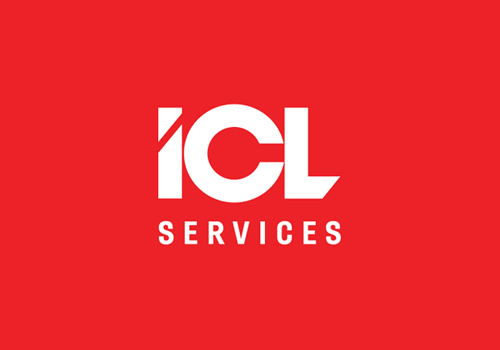Готово!
Скоро материал придет на указанную электронную почту. Также подписывайте на нас в Facebook
Ok
Renat Kareev: "The competition in the data backup market will enable Russian software to close the ten-year gap in three to five years"
– Renat, what are the requirements for backup systems given the continuous increase in data volumes?
– In the modern world of ever-growing data volumes, the requirements for backup systems are becoming increasingly strict. Besides solving the obvious issue of copying data from various applications, it is necessary to:
- Ensure the best use of computational resources, as backups are usually carried out simultaneously with business task computations;
- Optimize the volume of data transferred from the backup client system to minimize the effect of backups on other operations;
- Minimize the disk space taken up by backups;
- Provide the highest possible number of recovery points (backups).
Moreover, backup systems should be capable of handling a vast number of applications and allow for backups to be restored from data centers to cloud services and vice versa.
– What do Russian users prioritize today? Is it maintaining existing foreign backup systems, implementing Russian systems, or transitioning to cloud storage?
– The choice of a data backup system to be used as part a company's information system depends on various factors. Primarily, it depends on the business requirements and what other tools and solutions are being used within the data center.
Based on observations, users in Russia today can be divided into several groups:
The first group comprises state-owned companies. Here, it's very straightforward. There is a Presidential Decree No. 166 dated March 30, 2022 "On Measures to Ensure Technological Independence and Security of the Critical Information Infrastructure of the Russian Federation", and state-owned companies are implementing strategies to transition to Russian software, including domestic data backup systems.
The second group comprises companies that have a surplus of resources for growth and hence plan to support their existing solutions (this primarily refers to the two cornerstones of modern data centers: Microsoft Active Directory service and VMware vSphere virtualization system). Such companies possess a supply of data backup system licenses covering their needs for the next two to three years, and thus, they are not in a rush to switch to Russian systems.
The third and most populous group includes companies that have "outgrown" their infrastructure and are unable to expand it due to sanctions. These companies are switching to domestic software because they have no alternatives.
In my opinion, the two primary reasons why companies strive to avoid transitioning to Russian-made software are:
- The first rule of an engineer is "don't touch it if it works";
- Russian software began to develop relatively recently compared to such market leaders as Microsoft, VMware or, speaking of data backup systems, Commvault and Netbackup. It significantly lags behind in terms of functionality and application stability, while its cost tends to be higher than that of its western counterparts.
A similar problem exists with cloud solutions, although the gap here is not as wide.
– How can a company or organization ensure reliable backups in the current situation? How many copies does it need? How frequently? What media and pattern should it use?
– If we talk only about the number of copies, then it's fairly straightforward. The industry standard requires storing two operational copies in different data centers and one offsite copy at a remote location. Since acquiring tapes for storing offsite copies can be quite challenging in Russia, we suggest storing one copy in a cloud provider's object storage as an extra security measure. Therefore, reliable backup can be achieved by having three copies: two copies in the main and backup data centers and one copy in the cloud storage.
However, ensuring reliable backup in the current situation is no easy task. It's not just about the number of copies to store and the type of storage media — that's merely scratching the surface. Having dependable software and a team of support engineers capable of ensuring continuous backup service operation is crucial, as many companies have lost their foreign backup support and management teams along with their foreign software. We offer backup system support and management services as part of our projects for transitioning to Russian data backup software. Our company boasts extensive experience in this area.
– What additional skills should system integrator companies cultivate to tackle these challenges?
– Managing backups requires a highly specialized skill set. Apart from a thorough understanding of the backup product, it's essential to know how client systems operate, be it a Linux server or a database. A backup administrator needs to have a firm grasp of the fundamental principles and concepts in areas such as Linux Administration, Windows Administration, Networking, Data Storage Systems, Virtualization, Databases, and other applications they will come across. Additionally, it's important to highlight the need for developing problem diagnosis and resolution skills, as backup errors are often not straightforward and occur due to a combination of numerous different factors.
– Could you provide examples of recent projects involving backup systems?
– Over the past year, our company has helped several businesses transition to Russian backup systems. The projects vary greatly, ranging from small businesses with approximately 10 TB of data to giants dealing with 400-500 TB of data that needs to be backed up. The implementation process was challenging, but our clients were satisfied with the outcome.
I'd like to give a special shout-out to our first client who came on board after February 2022. It is a car sales company. It was part of a European conglomerate for a long time, with IT management handled from the headquarters. In the process of business separation, they were essentially left with nothing but hardware and a small set of Russia-specific applications (like 1C). We were tasked with essentially building a backup service from the ground up to meet business needs. Fine-tuning is still underway, but the crucial part of the infrastructure has already been backed up again.
Another example is, curiously enough, another major car dealer. For this client, separating from the main office was smoother. We had to take over a large, developed infrastructure with a well-established backup service based on foreign software (Commvault), while simultaneously separating that solution from the head office. The work was completed quickly, seamlessly, and without causing any inconvenience to the client, which left them very satisfied.
Most noteworthy, in my opinion, is the story of a client who decided to transfer part of their data center infrastructure to the cloud of one of Russia's largest cloud providers. They ran into the issue of cloud backup, which was quite surprising since backup is considered an essential part of any infrastructure, and it was odd not to see a ready solution from one of the tech leaders. Luckily, we found an alternative solution and managed to protect the client's workloads in the cloud.
– What are your predictions about the future of data backup technologies in Russia?
– The vacuum left behind by the global market leaders in backup systems (Commvault, Veeam, and Veritas NetBackup) is being actively filled by Russian manufacturers and companies from China. I think it's a good thing that market competition has been preserved. In my opinion. it will allow Russian software to close a decade-long gap rather swiftly — within three to five years — and introduce a product that can compete with the top players in the global data backup market.
– Thanks a lot for your time!
Stay informed
Subscribe to our newsletter and keep up with our latest news

